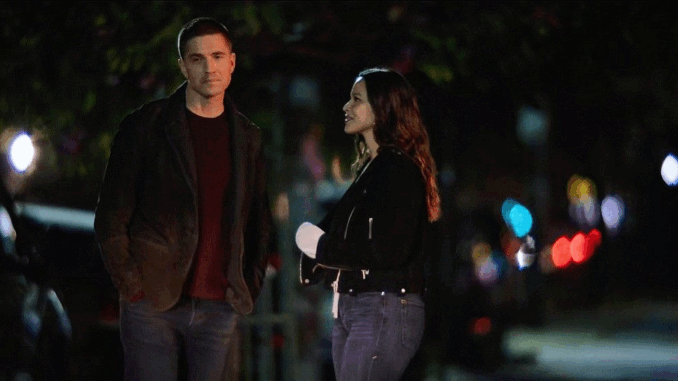
A Different Kind of Hero:
John Nolan doesn’t wear a cape or charge into every scene with guns blazing. His superpower is his emotional intelligence, resilience, and ability to learn from failure. His story is less about catching criminals and more about becoming the best version of himself.
Season-by-Season Growth:
-
Season 1: Nolan adjusts to the culture shock of LAPD life, often being tested by harsh training protocols and condescending peers. Despite frequent doubts from Sergeant Grey and others, he earns respect through his instincts and compassion.
-
Season 2: He faces greater risks — bomb threats, mass casualty incidents, and ethical dilemmas. He starts to embrace his role and display confidence in high-stakes situations.
-
Season 3: One of the most critical arcs — Nolan is framed by Detective Armstrong. This not only affects his standing in the department but also tests his faith in the system. He begins considering becoming a training officer.
-
Season 4–5: Nolan becomes more than just a field officer. He builds strong ties with colleagues, mentors younger officers, and is promoted to training officer — a turning point that shows the department now sees him as a leader.
-
Season 6–7: He faces personal risks, such as life-threatening attacks, corruption inside the department, and the emotional toll of working with rookies who may not all succeed. He also steps up as a moral compass, often challenging command decisions for the greater good.
Relationships & Humanity:
Nolan is defined by his empathy. He connects with victims, listens to civilians, and is often the only officer willing to give someone a second chance. His interactions with his son, Henry, reveal his struggle to maintain a parental role while dedicating himself to dangerous work.
His romantic journey with Bailey Nune adds another layer of vulnerability. Unlike earlier relationships, Bailey challenges Nolan to be present, to trust, and to commit in ways he hadn’t before.
Leadership Through Integrity:
By Season 7, John Nolan is no longer “the old guy trying to fit in.” He’s a dependable mentor, a sharp tactician, and a strong voice for community-focused policing. His leadership style contrasts with others in the department — less authoritarian, more compassionate — and that makes all the difference.
Legacy:
What makes Nolan stand out is that he’s never trying to be a hero — he’s just trying to do the right thing. In a profession often defined by ego and adrenaline, his quiet integrity and relentless effort to grow set him apart. His journey proves that leadership isn’t about perfection — it’s about purpose, patience, and persistence.
